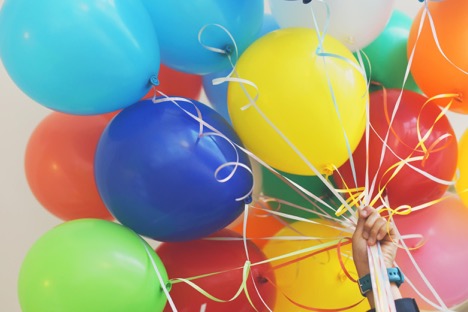
Entering the social scene as a newly-sober person is a scary moment. You’ve made it this far in your sobriety, but what if social pressure proves to be too much? One way to take the reins in your social life is to throw your own events. That way, you can mingle in an environment that’s safe and free of temptation. However, there are still some cautions to take when hosting your own event.
First things first, you need to decide if your party will include alcohol at all. If you’re comfortable staying sober in the presence of alcohol, you may choose to provide drinks for friends. However, don’t feel obligated to include alcohol just because other people aren’t sober. Friends who are supportive of your recovery will understand your hesitation to be around alcohol and gladly sip on fancy mocktails instead. And friends who aren’t supportive of your recovery? They probably shouldn’t be invited in the first place, which brings us to the next point:
Don’t invite just anyone. While it may feel rude to leave people out, inviting people who use or pressure you to use could leave you facing temptation you’re not ready for. Instead, stick to invitees who are aware of and encourage your path toward sobriety. It’s a wise idea to include an accountability buddy in that guest list so you have someone to lean on if you’re feeling tempted (or just let your sponsor know you may call). However, if you’re inviting friends who are also in recovery, ask about their comfort around alcohol as well before stocking the bar.
Whether you choose to include alcohol or not, you’ll want to craft nonalcoholic party drinks so everyone has something to sip on. Cans of soda and bottled water are unlikely to impress anyone; instead, whip up sparkling beverages with inventive flavors, like these recipes from Tablespoon. Just make sure unsuspecting children don’t mistake a cocktail for a mocktail — early experimentation is one of the biggest risk factors for addiction later in life, according to the National Institute on Drug Abuse, so it’s important to keep alcohol safely out of children’s reach.
Once you’ve figured out the food, drinks, and invitations, you may find yourself wondering what you’re actually supposed to do at a party. After years of treating parties as an opportunity to binge, planning an event that doesn’t revolve around drugs and alcohol may be unfamiliar territory. Plan activities and icebreakers for the moments when conversation lulls and to get the party started. Or, you can coordinate an event at a fun location that offers built-in activities, like the beach or a karaoke lounge. An off-site event is also a good choice if a party at home would be triggering due to past habits.
Of course, it’s easier to plan an alcohol-free party if you opt for a daytime event, rather than a late-night soiree. Many people are accustomed to drinking at evening events, but scheduling your get-together during the day removes the expectation of alcohol. Plus, there are more options (and easier booking) for activities during the daytime than the evening, especially if you have a large group.
There are a lot of great reasons to host a party. Maybe you’re celebrating a big achievement, getting family together, or welcoming a new addition to your own family. But for people in addiction recovery, there’s one big reason that can’t be ignored: When you host, you control what substances and people are present. And by controlling the situation, you maintain control over your recovery. And that’s worth celebrating.
Image via Unsplash
